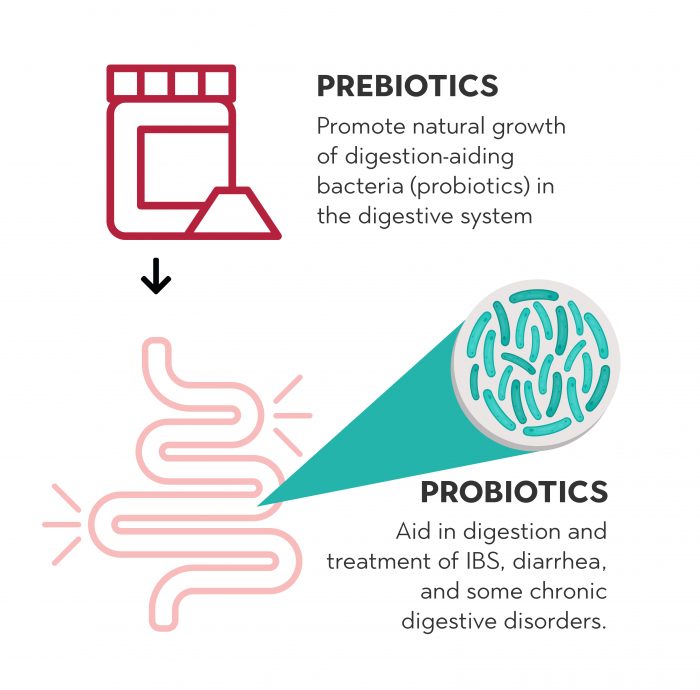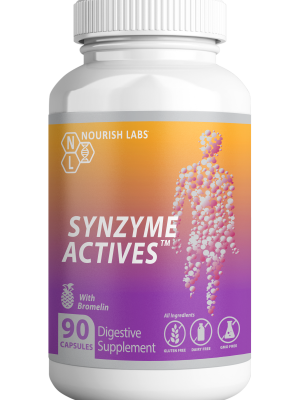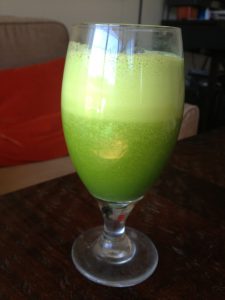
What is a Prebiotic?
You are likely seeing and hearing a lot about prebiotics. You may even see it on your probiotic label if you are purchasing a combination product. So what is a prebiotic, and do you need one?
The scientific definition of a prebiotic is a “selected fermented” ingredient that allows gastrointestinal flora to thrive. In basic English, prebiotics are “food” for beneficial bacteria in the gut that help them thrive. Most prebiotics are carbohydrate compounds –so they often end in –ose or –itol, meaning they are sugars or alcohols.
So no, prebiotics and probiotics are not the same thing.
Prebiotics help your existing gut bacteria to thrive, whereas probiotics introduce good bacteria to your gut. When these two forces are combined together, they are often referred to as a symbiotic, because they help each other do their job.
Do I Need One?
The answer to this really depends on your diet and lifestyle.
Prebiotics are a type of dietary fiber that are not digestible by your body. Lots of natural foods contain this fiber, and so you may not need to add another supplement or pill to your diet.
If you are getting lots of “undigestible” fiber in your diet from chicory root, the skin of many vegetables and fruits, or find that your probiotic alone is doing its job, you may not need to add a prebiotic.
However, if you are finding that a probiotic alone is not working, it may be wise to look into a combination product, or add more specific kinds of fiber to your diet.
What Do I Need to Do?
The first thing you need to do is be cautious of “prebiotic” packaged foods.
Many companies are adding inulin to their crackers and cereals, and proclaiming that they are “prebiotic” foods.
The actual benefit to your body is questionable, as you would need to ingest boxes of the stuff to get any benefit. You will, however, get diarrhea from all the indigestible fiber, and you will outdo any benefit by eating crackers full of gluten that will only inflame your gut.
Outside of that, be sure to get lots of “indigestible” fiber in your diet, by trying to eat the skins of the vegetables you are already consuming. Chicory root can be added to smoothies or coffee.
Finally, you can choose to add a liquid or pill form prebiotic to your supplement regular routine. On their own, prebiotics have not been shown to have any real benefit, but you can always see for yourself and/or combine them with a probiotic.
Regardless of whether or not you choose to take prebiotic, it is essential to be consistent.
You are keeping up a level of “good bacteria” in your system. Like keeping a volleyball in the air, it is important to take a prebiotic daily, otherwise it is not able to do its job, and you are throwing money down the drain.
These statements have not been evaluated by the Food and Drug administration. This product is not intended to diagnose, treat, cure or prevent any disease.
Disclaimer
The content on this website strictly for educational purposes. The ideas, opinions, and suggestions contained on this website are not meant to replace medical advice. Readers of this website should not rely on any information provided here as a substitute for medical advice, diagnosis, treatment or consultation with a medical professional. Nourish Nutrition, Inc. does not encourage, nor is it liable for failure to seek medical advice from an appropriate licensed medical professional.





